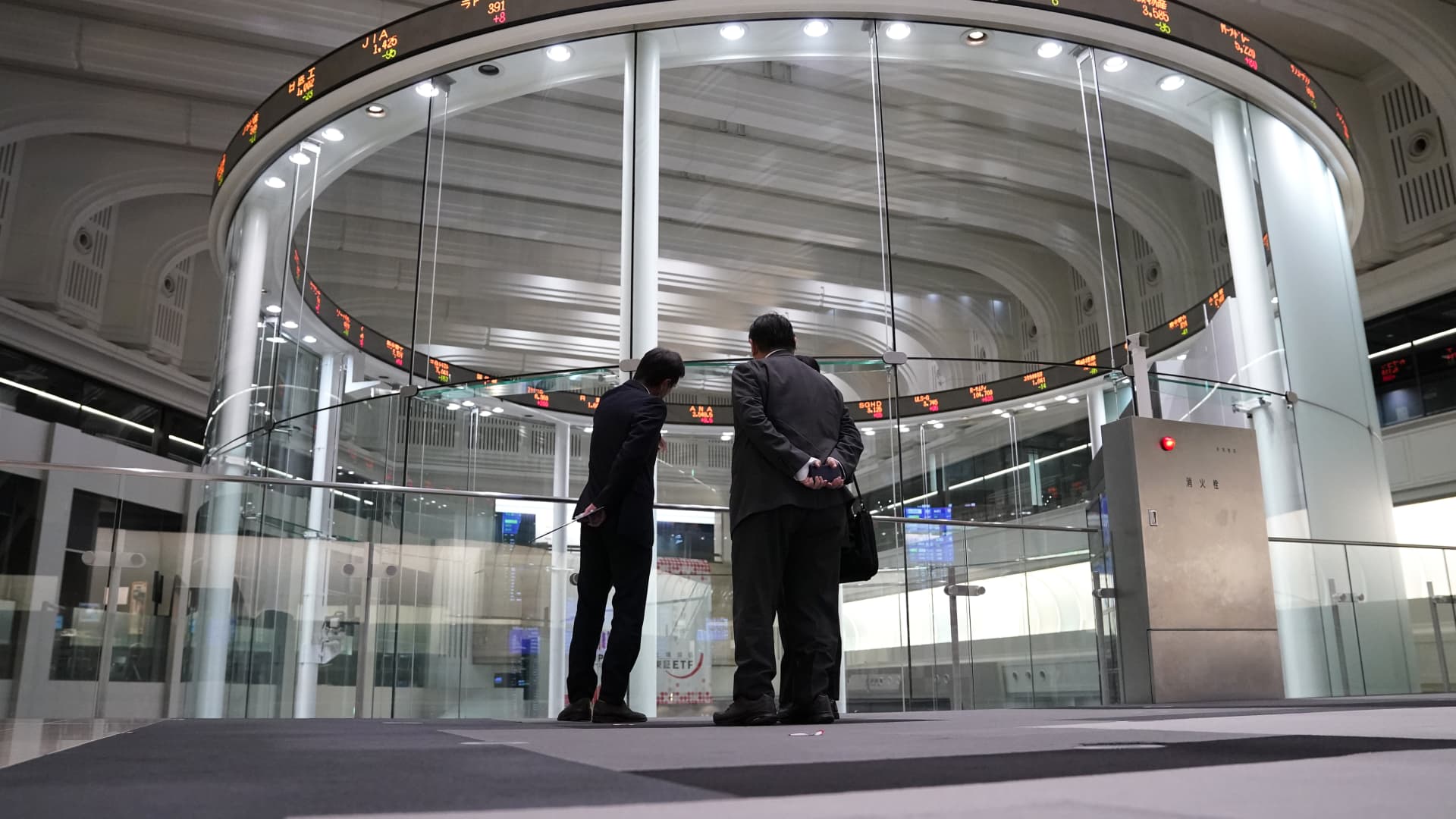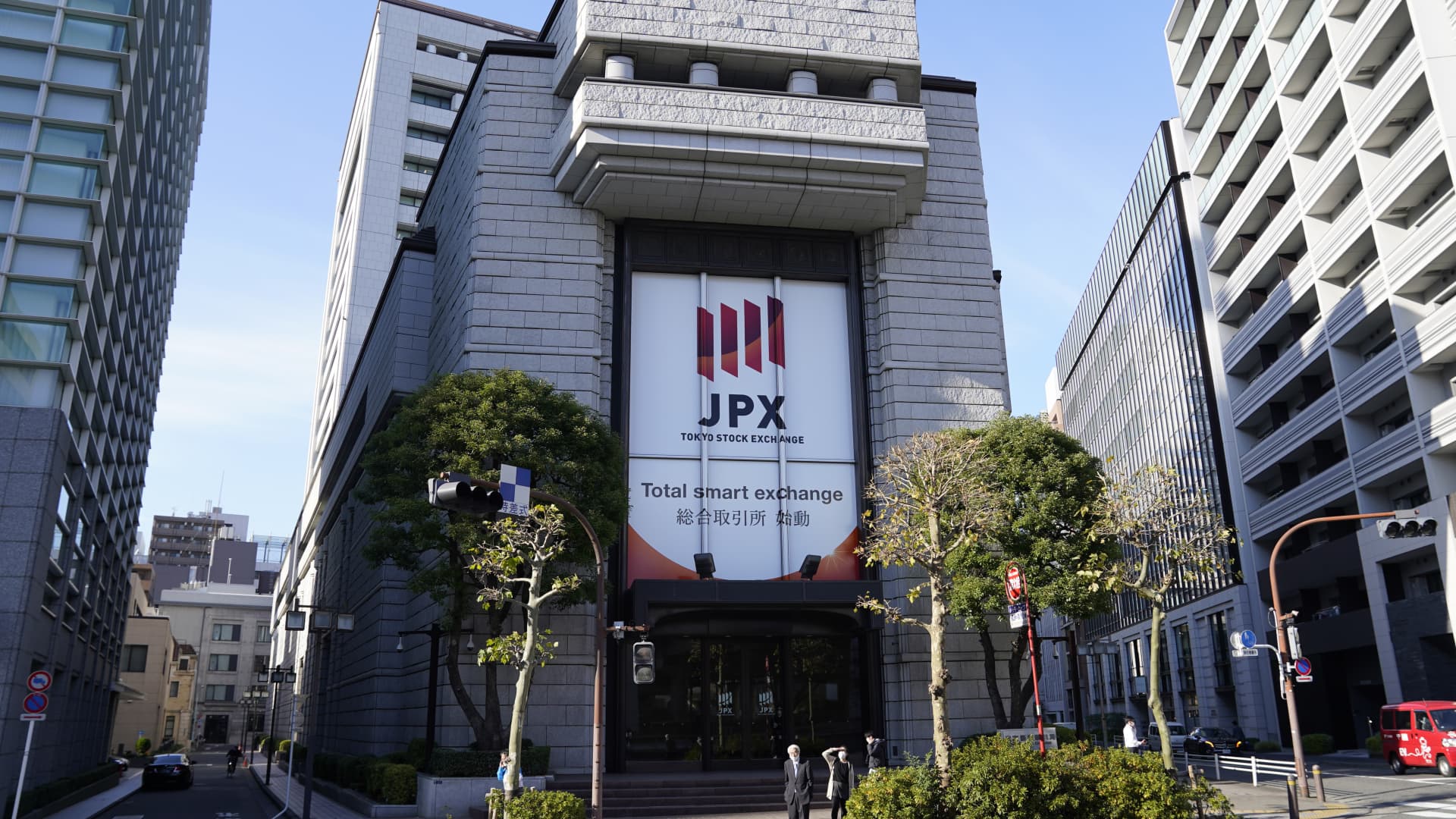Japan leads losses in Asia markets; private survey shows China's factory activity expanded
Asia-Pacific markets reversed gains and fell on the first day of the new quarter as investors digested factory activity data from a private survey in China.

SINGAPORE — Asia-Pacific markets reversed earlier gains and fell on the first day of the new quarter as investors digested positive factory activity data from a private survey in China.
The Nikkei 225 in Japan fell 1.73% to close at 25,935.62, and the Topix declined 1.38% to1,845.04. Fast Retailing slipped 4%.
Sentiment at Japan's large manufacturers worsened in the April-to-June period, according to the Bank of Japan's quarterly tankan business sentiment survey. The headline index for large manufacturers' sentiment came in at 9, a decline from the previous quarter's reading of 14.
"The manufacturers right now are facing a number of headwinds ranging from surging input costs to unsteady supply conditions," said Stefan Angrick, senior economist at Moody's Analytics.
"Much of that, of course, has to do with Russia's invasion of Ukraine and Covid-19 lockdowns in China," he told CNBC's "Squawk Box Asia" on Friday.
In South Korea, the Kospi also reversed course to fall 1.17% to 2,305.42, and the Kosdaq was 2.14% lower 729.48.
Australia's S&P/ASX 200 declined 0.43%.
MSCI's broadest index of Asia-Pacific shares outside Japan fell 1.03%.
China markets
Stock picks and investing trends from CNBC Pro:
Markets in Hong Kong were closed on Friday for a holiday as the city commemorates the 25th anniversary of its handover from the U.K. to China on Friday.
Chinese President Xi Jinping arrived in Hong Kong on Thursday. He presided over the inauguration of Hong Kong's new chief executive, John Lee, on Friday.
This is Xi's first trip outside mainland China since Covid hit. Lee will replace outgoing leader Carrie Lam.
On Wall Street, U.S. stocks closed the second quarter of the year lower. The S&P 500, which had its worst first half in more than 50 years, declined nearly 0.9% to 3,785.38.
Meanwhile, the Dow Jones Industrial Average slipped 253.88 points, or 0.8%, to 30,775.43, and the Nasdaq Composite pulled back by 1.3% to 11,028.74.
As the U.S. economy slows and consumers spend less, cash flow for companies will take a hit and stocks will likely fall further, according to Rebecca Patterson, chief investment strategist at Bridgewater Associates.
"Stocks will be challenged, we think, in the second half of the year in the U.S. We're still quite bearish," she told "Squawk Box Asia."
Currencies
The U.S. dollar index, which tracks the greenback against a basket of its peers, was at 105.081.
The Japanese yen traded at 135.07 per dollar, after briefly weakening past the 137 level earlier this week. The Australian dollar was at $0.6814.
Oil futures gave up gains to trade mostly flat. U.S. crude lost 0.2% to $105.55 per barrel, while international benchmark Brent crude was just above the flatline at $109.05 per barrel.

 Tfoso
Tfoso 































